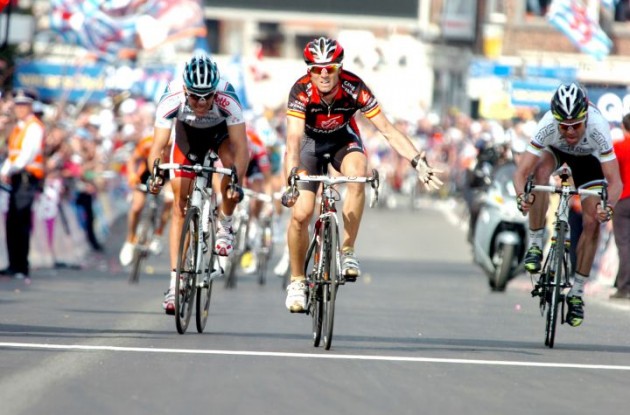Court Upholds Alejandro Valverde's Doping Ban
Spanish cyclist not allowed to compete until January 2012.
Spanish cyclist Alejandro Valverde suffered another legal defeat when Switzerland's supreme court upheld his doping bans for using the blood-boosting hormone EPO.
The Swiss Federal Tribunal rejected Valverde's request to overturn suspensions imposed by the Court of Arbitration for Sport and the Italian Olympic Committee (CONI).
The CAS banned the 30-year-old rider until January 2012 when it ruled in favor of the International Cycling Union and World Anti-Doping Agency in May. However, the court allowed Valverde to keep his 2009 Spanish Vuelta title and other victories gained before this year.
The two organizations asked CAS to extend Valverde's ban worldwide after he was first suspended by CONI from riding in Italy.
The Italian body pursued Valverde using evidence gathered in 2006 during the Operation Puerto case after Spanish authorities refused to prosecute him.
Federal judges ordered Valverde to pay 4,000 Swiss francs ($4,130) in court costs, plus 5,000 Swiss francs ($5,160) each toward the legal costs of the UCI, WADA and CONI.
Despite the Swiss rulings published Thursday, Valverde's appeals may not be over.
His advisers said in May that any federal decision could be appealed at the European Court of Human Rights.
Valverde is the only Spanish rider who has been punished using Puerto evidence, which drove Germany's Jan Ullrich into retirement and led to a two-year ban for Italy's Ivan Basso.
Valverde never tested positive for a banned drug, but was linked to a doping ring by DNA evidence seized by police in raids on the Madrid clinic of doctor Eufemiano Fuentes.
Spanish authorities frustrated the UCI by arguing that national laws left them powerless to investigate riders.
Italy's Olympic authority then matched Valverde's DNA from a Puerto blood bag containing EPO to his blood sample taken during the 2008 Tour de France when riders had a rest day in Italy.








